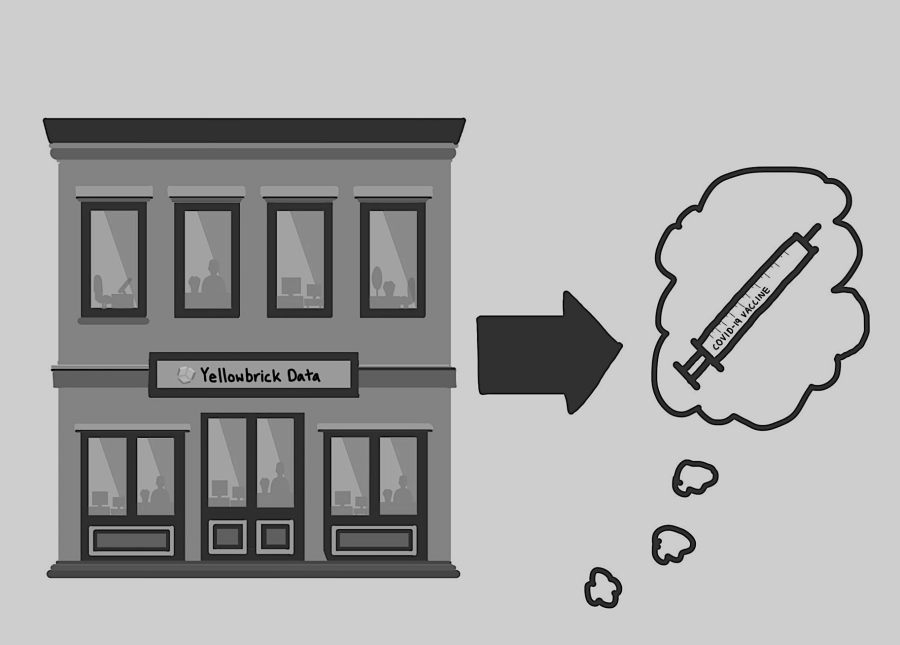It’s been over two months since the Aurora Team began working on a remote basis. The quiet and closed facilities leaves some wondering whether Aurora will be able to continue manufacturing their self-driving cars. However, for the Aurora Team the current situation has additionally demonstrated the need for reliable and safe transportation.
In the midst of the COVID-19 pandemic, nearly every aspect of society has been affected, including local startups. Headlines capture the big layoffs at well-known companies like Uber and Lyft, but startups like TripActions, Aurora Innovation and Yellowbrick Data, far from household names, have their own COVID-19 stories to tell too.
According to Crunchbase News, Palo Alto startup TripActions, which offers management for people with business travel and expenses, has been forced to lay off 27% of its staff due to lack of travel during the pandemic.
“This global health crisis is unlike anything we’ve ever seen in our lifetimes, and our hearts go out to everyone impacted around the world, including our own customers, partners, suppliers and employees,” Crunchbase News wrote. “(COVID-19) has had (a) wide-reaching effect on the global economy. Every business has been impacted including TripActions. While we were fortunate to have recently raised funding and secured debt financing, we are taking appropriate steps in our business to ensure we are here for our customers and their travelers long into the future.”
To relieve some of the financial stress affecting TripActions, the company has begun to take measures on a global scale.
“We’ve cut back on all non-essential spend and made the very difficult decision to reduce our global workforce in line with the current climate,” Crunchbase News wrote. “We look forward to when the strength of the global economy and business travel inevitably return and we can hire back our colleagues to rejoin us in our mission to make business travel effortless for our customers and users.”
Palo Alto startup Aurora Innovation, which specializes in the development of driverless technology, has started brainstorming new alternatives for their company.
In a blog post by Aurora, Chief Executive Officer Chris Urmson wrote that the current situation has demonstrated a need for self-driving transportation that can move people and goods quickly and safely.
“Our company remains in a solid position, with the unwavering support of investors who understand the importance of continuing to make bold, long-term bets,” Urmson wrote. “We’re fortunate to be able to employ and pay our existing team members, continue hiring incredible people in all disciplines and advance development on the Aurora Driver. Through ingenuity, dedication and thoughtful leadership, we’re poised to emerge from this with stronger technology and a more connected team than ever before.”
After The Urmson shift after the closure of the company’s physical offices, its focus has been on areas where real progress can be made, such as the Aurora Virtual Testing Suite.
“Our vehicle operators have joined forces with our triage and labeling teams to mine our massive collection of manual and autonomous driving data for on-road events that can be turned into virtual tests,” Urmson said. “We’re using our Hardware in the Loop pipeline to test new software on Aurora Driver hardware remotely. We continue to build and refine our HD autonomous vehicle map, the Aurora Atlas, in areas where the Aurora Driver will operate when we resume on-road testing.”
According to Urmson, in addition to expanding its technology in the Aurora Virtual Testing Suite, the business is looking beyond the pandemic and investing in infrastructure to speed up development.
“We continue to build new tools, such as a new web application that will make building simulations easier and faster,” Urmson wrote. “We’re also adding enhanced features to our existing tools, many of which will also support the rapid creation of new virtual tests.”
Mitigating the pandemic’s implications with an alternative tactic, Palo Alto startup Yellowbrick Data is using its platform to help researchers develop a COVID-19 vaccine. The company, which operates data warehouses, has accelerated its own research and offers free access to its data warehouse for all researchers trying to find a vaccine, Chief Executive Officer Neil Carson said.
“We’re proud to offer access to Yellowbrick’s analytics capabilities to researchers who are working tirelessly to make a difference,” Carson said. “We think our innovative technology can give them a powerful boost and help speed the time to insight.”
Yellowbrick Data has also recently partnered with Virtusa, located in Fremont, to establish another digital strategy service company to provide access to other platforms with data, including one where companies that are working toward a vaccine can connect data from a broad range of clinical and media sources.
Anthony Lange, Senior Vice President of Virtusa, said the partnership between Virtusa and Yellowbrick is beneficial to researchers who are trying to find data that will further the development of a COVID-19 vaccine.
“By joining the capabilities of Virtusa and Yellowbrick, we can help customers provide real-time ingestion, faster performance and powerful analytics,” Lange said. “Synthetic data sets available in vLifeTM significantly accelerate research and clinical trials to reduce the timeline for finding and delivering life saving drug therapies.”
Carson said he hopes Virtusa and Yellowbrick’s combined data can help researchers find a vaccine as soon as possible.
“We’re pleased to be joined by Virtusa in the effort to support life-saving work,” Carson said. “It’s essential that companies join forces to support COVID-19 research and trials, and we are thrilled to partner and bring together our powerful analytics engine with Virtusa’s vLifeTM platform.”


